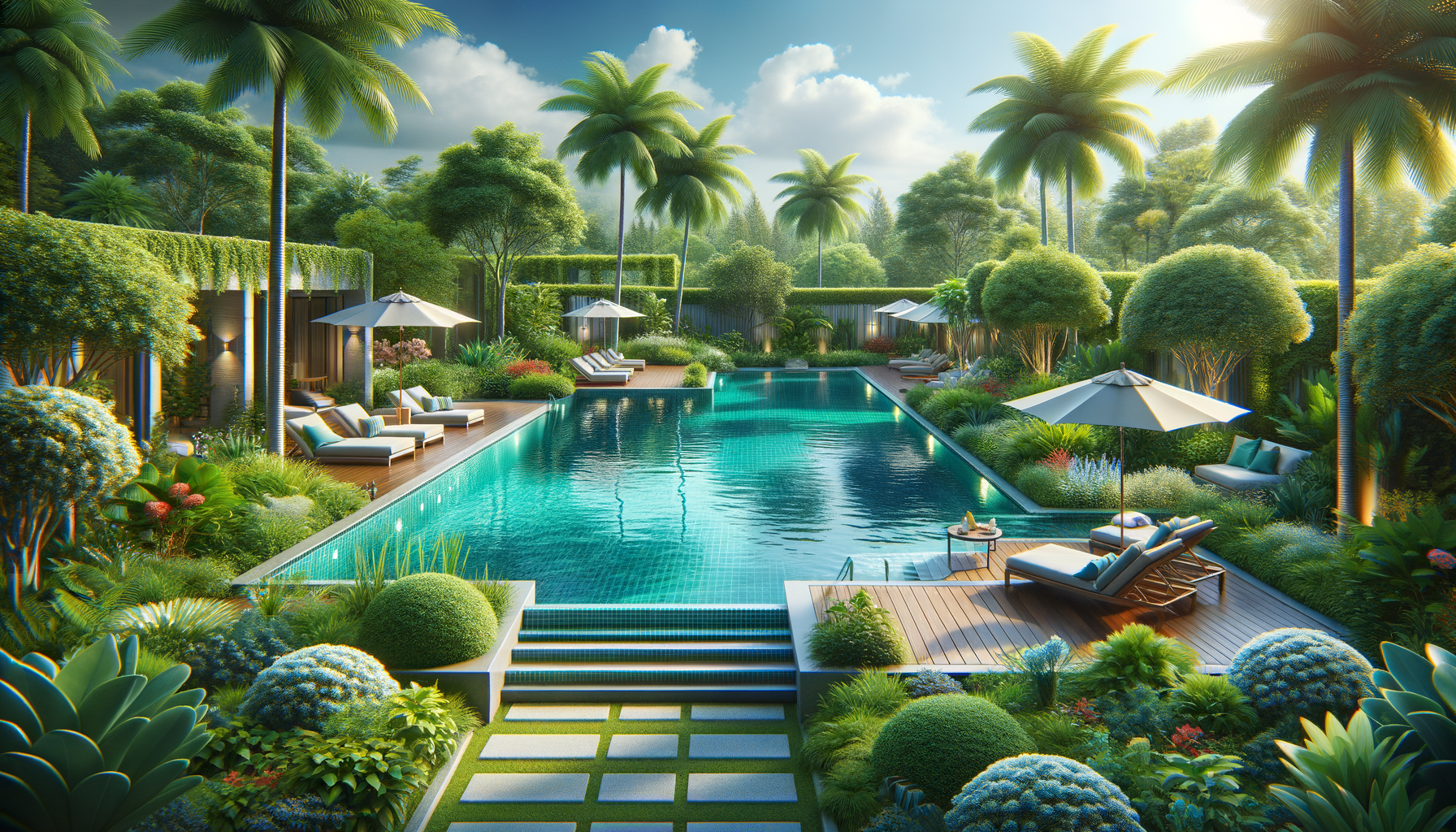Introduction to Outdoor Pools
Outdoor pools provide a refreshing retreat from the heat, offering a perfect blend of relaxation and recreation right in your backyard. These pools are more than just a place to swim; they serve as a focal point for social gatherings, a playground for children, and a personal oasis for relaxation. The allure of an outdoor pool lies in its ability to transform a simple backyard into a luxurious escape, providing endless hours of enjoyment for family and friends.
Having an outdoor pool can significantly enhance the aesthetic appeal and value of a property. With a variety of designs and styles available, homeowners can customize their pools to reflect personal tastes and complement their home’s architecture. Whether it’s a sleek, modern design or a natural, lagoon-like setting, the options are as diverse as the individuals who own them.
Moreover, outdoor pools offer numerous health benefits. Swimming is an excellent form of exercise, promoting cardiovascular health, improving flexibility, and reducing stress. The convenience of having a pool at home encourages regular physical activity, which is essential for maintaining a healthy lifestyle. Additionally, the calming effect of water can contribute to mental well-being, making an outdoor pool a valuable addition to any home.
Types of Outdoor Pools
When considering an outdoor pool, it’s important to understand the different types available, each with its unique advantages. The most common types include in-ground and above-ground pools, each catering to different needs and budgets.
In-ground pools are a popular choice due to their durability and aesthetic appeal. They can be constructed using various materials such as concrete, fiberglass, or vinyl, each offering distinct benefits. Concrete pools are highly customizable and can be designed in any shape or size, making them ideal for those seeking a unique pool design. Fiberglass pools, on the other hand, are pre-molded and offer a smooth surface that’s resistant to algae growth, requiring less maintenance. Vinyl pools are often the most budget-friendly option, with a flexible liner that can be replaced as needed.
Above-ground pools are a cost-effective alternative, typically easier and quicker to install than in-ground options. They are perfect for those who want to enjoy the benefits of a pool without the commitment of a permanent structure. Above-ground pools come in various sizes and shapes, and their portability makes them a versatile choice for renters or those planning to move in the future.
Additionally, there are specialty pools such as infinity pools, which create a stunning visual effect with water flowing over one or more edges, and natural pools, which use plants and biological filters to maintain clean water without chemicals. Each type of pool offers a unique experience, allowing homeowners to choose the option that best fits their lifestyle and preferences.
Design Considerations for Outdoor Pools
Designing an outdoor pool involves more than just selecting a shape and size. It requires careful consideration of various factors to ensure the pool complements the home and meets the needs of its users. One of the primary considerations is the pool’s location. It should be positioned to maximize sunlight exposure, which not only warms the water but also enhances the pool’s usability throughout the day.
Another important aspect is the surrounding landscape. Integrating the pool with the existing environment creates a harmonious and visually appealing space. This can be achieved through the use of natural stone, lush greenery, and strategically placed lighting to highlight the pool area at night. Additionally, features such as waterfalls, fountains, and rock formations can add a touch of elegance and tranquility.
Safety is also a crucial element in pool design. Installing a secure fence around the pool area helps prevent accidents, especially if there are young children or pets in the household. Non-slip surfaces around the pool deck and proper lighting are essential for ensuring safety during nighttime use. Pool covers and alarms can provide additional peace of mind by protecting the pool when not in use.
Lastly, consider the pool’s maintenance requirements. Automated cleaning systems, energy-efficient pumps, and saltwater chlorinators can reduce the time and effort needed to keep the pool clean and functioning efficiently. By thoughtfully planning the design and features of an outdoor pool, homeowners can create a space that is both beautiful and practical.
Benefits of Owning an Outdoor Pool
Owning an outdoor pool offers numerous benefits that extend beyond mere recreation. One of the most significant advantages is the enhancement of property value. A well-designed pool can be a major selling point for potential buyers, often leading to a higher resale value. The aesthetic appeal of a pool, combined with its functionality, makes it a desirable feature for many homeowners.
In addition to increasing property value, outdoor pools provide a private venue for family gatherings and social events. They offer a convenient setting for hosting parties, barbecues, and other celebrations, creating memorable experiences for family and friends. The pool area can be transformed into an entertainment hub, complete with outdoor kitchens, seating areas, and fire pits, making it a versatile space for various occasions.
Moreover, an outdoor pool promotes a healthy lifestyle by encouraging regular physical activity. Swimming is a low-impact exercise that improves cardiovascular health, strengthens muscles, and enhances flexibility. The convenience of having a pool at home eliminates the need to travel to public pools or gyms, making it easier to incorporate exercise into daily routines.
Lastly, the presence of a pool can have a positive impact on mental health. The soothing effect of water, combined with the beauty of nature, creates a calming environment that helps reduce stress and anxiety. Spending time by the pool, whether swimming or simply relaxing, can improve mood and overall well-being.
Maintaining an Outdoor Pool
Maintaining an outdoor pool is essential to ensure its longevity and usability. Regular maintenance not only keeps the pool clean and safe but also helps prevent costly repairs in the future. One of the key aspects of pool maintenance is water quality. Regular testing and balancing of chemicals such as chlorine and pH levels are necessary to keep the water safe and clear.
Cleaning the pool is another important task. Skimming the surface to remove debris, brushing the walls and floor to prevent algae buildup, and vacuuming the pool are essential steps in maintaining cleanliness. Additionally, the pool’s filtration system should be checked and cleaned regularly to ensure it operates efficiently.
Seasonal maintenance is also crucial, especially in regions with varying climates. In colder areas, winterizing the pool by draining the water to a safe level and covering it with a durable cover can protect it from damage caused by freezing temperatures. In warmer climates, regular checks for leaks and ensuring the pool’s equipment is in good working order are necessary to prevent issues during peak usage times.
Investing in automated systems can simplify pool maintenance. Robotic pool cleaners, automatic chlorinators, and smart pool monitors can reduce the time and effort required to keep the pool in top condition. By staying on top of maintenance tasks, pool owners can enjoy a pristine and inviting pool throughout the year.




Leave a Reply